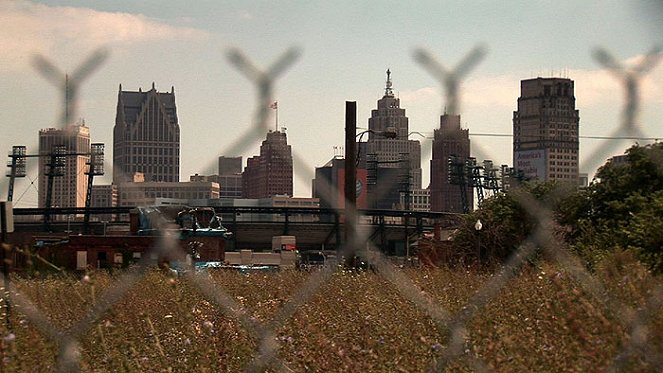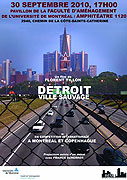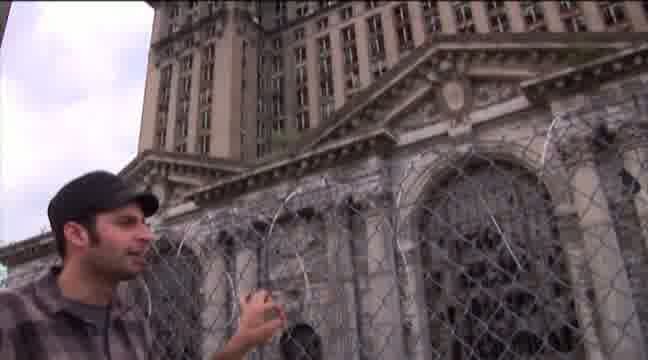Plots(1)
It’s a wonder that more post-apocalyptic films like Mad Max aren’t shot in Detroit – derelict houses lining empty streets in the centre of town, abandoned by more than half the population, where you’re more likely to come across pitbulls than cars – it’s simply the perfect location. Yet in the past Detroit was a highly productive bastion of American industry and people certainly didn’t have anything to complain about, as we’ll see from the archive footage in this spellbinding documentary by French director Florent Tillon. The guides on this hypnotic journey through contemporary Detroit are people from all walks of life – a local philosopher, pianist, stray dog catcher, and even a guy who can fix practically anything. The polished visual compositions from this “ghost town,” together with the subtle soundtrack and intriguing characters, make for a truly unique picture. (Karlovy Vary International Film Festival)
(more)Videos (1)
Reviews (2)
This documentary is able to evoke the atmosphere of Detroit and life within it, but it does not provide
the most important thing, namely information either from history or from the present (or a comparison
of these periods using facts). As if the creators did not want to deal with the causes of the decline of this
once important industrial city, they sum them up in one sentence: “And then came the drugs...” The
dialogue scenes with some suburban residents are on point, interesting and funny (the old gentleman
growing vegetables in his garden is the best) while some scenes are completely unnecessary. The fact
that over the past 50 years the number of white residents has decreased by 93% and the number of
black ones has increased by 160%, and that the drugs that destroyed the city were not brought by the
former, is not mentioned at all. Even the ratio of the skin color of its protagonists in front of the camera
is 1:1. The documentary, especially when intended for festivals, is the last medium that should hide the
truth only for the sake of so-called political correctness.
()
A lyrical memento of what happens when the social structure collapses. The post-apocalyptic atmosphere, but also the model stratification of the city into "closed communities" - one of the symptoms of the influence of corporate capitalism on the coherence of society. However, Tillon's film does not deal with context (instead only suggesting it), and he is more interested in capturing a city in decay and partial attempts at regeneration (clinging to the Christian-motivated "self-help", the pre-industrial community of growers). But as one of the speakers, the "grim philosopher" notes that they are more concerned with an alternative search for the city than the city itself. It is too bad that the director was not let in to the "white-collar" ghetto near the Renaissance Center, so one cannot enjoy the "city of zombies" from the other side of the barricade. But visually and aurally, this is a great project, tempting to different interpretations - Tillon was obviously interested in this, so I consider the information vagueness as more of an advantage.
()
Gallery (1)
Photo © MFF Karlovy Vary 2011



Ads